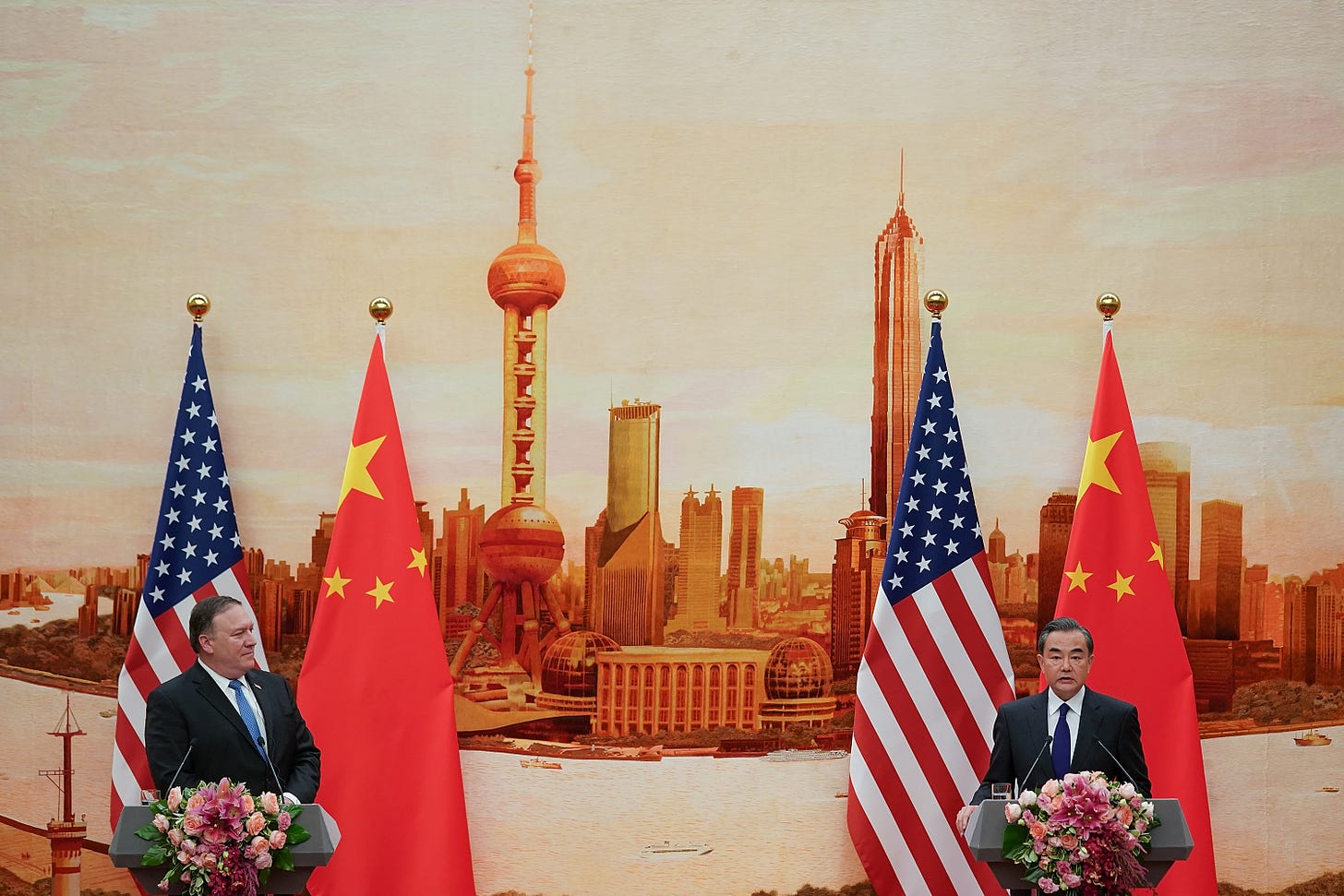Trade Wars Are Good. But Hard to Win.
Trump's trade war with China isn't the problem. The problem is how he's waging it.

One of the campaign promises President Trump has kept is that he’s more or less achieved a trade war with China. Free-trade maximalists have seen this as a bug, not a feature, correctly pointing to the negative economic impacts of trade wars. They create inefficiency! They distort markets! They pass along external costs to consumers! But the truth is that trade wars are not always unwise.
Adam Smith—no cuck, he—wrote that free trade must make exceptions both for national defense and for the use of retaliatory tariffs designed to dismantle existing. He writes:
The case in which it may sometimes be a matter of deliberation how far it is proper to continue the free importation of certain foreign goods, is, when some foreign nation restrains by high duties or prohibitions the importation of some of our manufactures into their country. Revenge in this case naturally dictates retaliation, and that we should impose the like duties and prohibitions upon the importation of some or all of their manufactures into ours. Nations accordingly seldom fail to retaliate in this manner.”
Viewed through the long lens, you might almost say that a trade war with China was inevitable. Strategists and politicians have been trying—and failing—to find a way to fix China’s unfair trade practices, including currency manipulation and intellectual property theft, for decades. The George W. Bush administration miscalculated that welcoming China to the World Trade Organization would fix its behavior. It did not. The Obama administration also failed to find an answer. And it isn’t just Trump who thought that a trade war could be helpful: In 2012 Mitt Romney, proposed a trade war without exactly saying the words out loud. And funnily enough, Trump’s tough stance on trade with China is one of the few policy areas where of congressional Democrats haven’t railed against him.
And conservative strategists and experts on Asia policy have been receptive of the idea of using tariffs as a coercive tool against China, too. The problem is that Donald Trump’s trade war’s biggest enemy is . . . Donald Trump.
The biggest importers of Chinese goods are the European Union, the United States, Japan, South Korea, Vietnam, and India. These nations all share three qualities in respect to China: Wariness of Chinese growth, irritation by Chinese trade practices, and existing alliances with the United States. (In case of India, the alliance is under development, and the Trump administration has made efforts to grow it.)
Last year President Trump declared that trade wars are easy to win, which is only something that someone would say if they’d never fought a trade war. They are not. Trade wars are both complex and complicated, and they demand resilience on the part of the aggressor, in this case the United States.
The Trump administration’s trade war with China can only be won with the help and commitment of the allies and bipartisan support from the Congress. Trade barriers have negative economic impacts, but like all wars, trade wars can be worth fighting, if victory is attainable in a cost-efficient manner.
The administration needs to cultivate the tacit Democratic support to make sure China cannot win the trade war by waiting out Trump’s tenure in office. He has to make it at least a credible possibility that the policy will extend beyond his administration. He also needs the United States’ allies, which would provide a two-sided advantage. First of all, by joining the United States they will increase the pressure on China’s economy (which already is facing difficulties). And second, the United States and its partners should relax trade barriers among themselves in order to minimize the negative economic impacts of the conflict.
Which brings us to the president’s self-sabotage. Early into his administration, Trump pulled the plug on the Trans-Pacific Partnership (TPP) and Trans-Atlantic Trade and Investment Partnership (TTIP). Since then he has also put tariffs on European and Canadian goods and is now considering the addition of new tariffs. Canada and the E.U. are not America’s adversaries. They, along with Australia, are its most reliable allies—and we need their help if we are to win Trump’s trade war.
A smart strategy would be to lift these newly imposed tariffs on our allies, re-join both agreements, and then encourage India to either join the TPP or form a bilateral free trade agreement.
There is no winning in this trade war if the burden is too heavy on the American people and too light on the Chinese. And the way to decrease the former and increase the latter is to leverage our existing alliances.
Trade wars are sometimes necessary. And they can be won. But only if you fight them in a serious manner, one conflict at a time.









